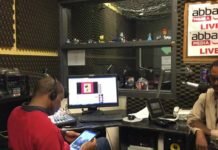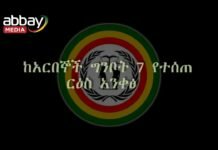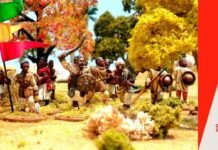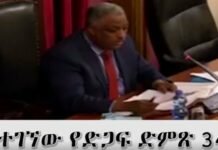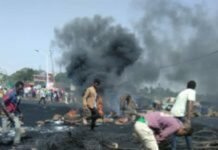 Part I of II
Part I of II
“Police state is a term denoting a government that exercises power arbitrarily through the power of the police force.” The term has now morphed and “taken on an emotional and derogatory meaning” by describing an undesirable” state and government that murders citizens with impunity. Wikipedia
From the Imperial period of Emperor Haile Selassie to the present, elites have dominated politics and the commanding heights of the economy at the expense of citizens and the common good. This political and economic capture by elites is more pronounced and exclusionary today than at any time in Ethiopia’s history.
Ethiopia’s seemingly intractable problem is therefore the lack of social, political, economic and spiritual space that would empower ordinary Ethiopian citizens to fulfil their potential. The only way out of this cycle of elite capture for the benefit of elites is a transition towards a democratic state and government.
Elites maintain their political and economic monopoly by asserting the notion that defending and preserving the constitutional order by any means necessary is vital for peace and stability and for sustaining socioeconomic growth and development. Instruments they deploy to maintain the status quo ante include ethnic division, the propagation of fear along ethnic lines, terrorism etc. Behind this narrative is fear of losing political and economic dominance by elites for elites; and the lack of confidence in preserving economic and financial gains made under the system. Resistance to fundamental change emanates from this fear of potential loss.
Sadly, the governing party and the opposition have failed to establish an institutional mechanism to alleviate fear and to promote mutual confidence among all stakeholders.
By segmenting the population into ethnic and religious silos, the global media echoes the narrative of the governing party that ethnic and religious divisions are “irreconcilable.” Little if any attention is given to the notion this narrative is being shattered on the ground by Ethiopia’s youth population that embraces Ethiopia’s mosaic and diversity as a strategic national asset; is bridging relations among people; and is sacrificing in lives and livelihoods to achieve a democratic system.
I am among Al-Jazeera’s genuine admirers. It offers the global community, especially the Arab and African world a different and diverse perspective. A few years ago, Al-Jazeera invited me to an African-Arab forum in Doha, Qatar, where frank and open discussions on cooperation and development took place with the benefit of analytical research from experts. This is a pioneering example of the future and the role of Africans and Arabs in shaping their own future. I commend Al-Jazeera for this type of innovative work; and urge it to bring hold a similar forum for youth and women.
This positive contribution by Al-Jazeera with regard to the current crisis in Ethiopia is, however, marred by a tendency to present an ethnic and religious perspective rather than an Ethiopian one at a cost to Ethiopian territorial integrity, national security, sovereignty and the unity of its 105 million citizens. I shall highlight substantive historical facts that bind Ethiopians together as Ethiopians.
- Ethiopia is one of the most celebrated ancient countries in the world.
- Ethiopia is a beacon of independence not only in Africa but also in what used to be known as the Colonial and “Third World.” It pioneered the formation of the Organization of African Unity (OAU), now called the African Union.
- Ethiopia is home to the three “Abrahamic faiths” of Judaism, Christianity and Islam. These three faiths have a long history in Ethiopia. They are uniquely and genuinely rooted in Ethiopian culture, history and other threads that bind Ethiopians together. Followers of the Prophet Mohammed fled Arabia to Ethiopia because it welcomed them; offered them safety and security. This fundamental principle of peaceful coexistence among Ethiopia’s major faiths and diverse population distinguishes this country from others. It is an endurable legacy that no one can take away from Ethiopians.
- Ethiopia’s incredibly rich mosaic and tapestry of people, cultures and faiths is a pillar of strength. The potential of this pillar of strength can only be harnessed and strengthened only by a just, fair and representative form or democratic system that persists as a significant and glaring gap in our country’s remarkable history. It is to fill this gap that innocent people, especially youth are dying.
- Ethiopia’s foreign policy must be anchored on the interests of the mosaic and vital bridges of mutual cooperation with all countries, especially Ethiopia’s neighbors must be established by a future Ethiopian government.
- For those that are fair and balanced in their assessments of Ethiopia and its remarkable people, there has not been a time in the country’s long history where one ethnic or religious group declared war on another.
- Ethnic and religious conflict is never tolerated by ordinary Ethiopians. For example, the vast majority of Ethiopians condemned and rejected the TPLF instigated ethnic conflict between Oromo and Somali Ethiopians.
- The media should appreciate and recognize the notion that there are Amhara Muslims; Oromo Muslims and Christians etc. Intermarriages among ethnic groups and faiths are common and normal. Mutual celebrations of events are normal. Uniting and fighting against external aggression and internal oppression together is normal etc. Ethiopia is a product of its mosaic.
- Under the current repressive and oppressive “divide and rule system,” Ethiopians proved to themselves and to the global community that they refuse to kill their “brothers and sisters” because they belong to a different ethnic or religious group. This is why the Amhara or the Oromo or others did not bring themselves down to the point of killing Tigreans who live throughout Ethiopia and have gained immense wealth and riches.
- Had ethnic hate ruled the day, Ethiopia would have been the new Rwanda. By their behaviors and actions, Ethiopians continue to show mutual tolerance and peaceful coexistence that no other society can match.
- A major Convention in Seattle, Washington held from February 16-19, 2018 showed that 26 political parties and an equal number of civil society organizations from diverse ethnic and religious groups share common denominators that are often overlooked:
- Commitment to the non-negotiability of Ethiopia as a unified and sovereign country;
- Commitment to the urgent task of defending and preserving Ethiopia as a country; and the prevention of civil conflict and genocide at any cost;
- Commitment to the popular rejection of the divide and rule system of the TPLF;
- Commitment to the urgent need for the formation of a transitional government of national unity that will lead and facilitate fair and free elections;
- Commitment to the rule of law and genuine equality of all ethnic and religious groups in Ethiopia;
- Commitment and support to the popular uprising led by Ethiopia’s youth; and to the formation of a government system that enables citizens to become the only sources of political power; and their representatives solely accountable to them;
- Commitment to sustainable healing, peace and reconciliation;
- Commitment to the notion that state and government and other actors who have committed crimes against humanity in Ethiopia must be held accountable;
- Commitment that there won’t be revenge and retaliation against any one; and,
- Commitment to the immediate release of all political prisoners; to the cessation of extrajudicial measures; and to the annulment of the state of emergency.
In light of the above denominators that bind Ethiopians beyond ethnicity and religious affiliation, domestic and global public opinion is against the TPLF. For the first time, the TPLF instigated divide and rule; and its poisonous and infectious use of fear as an instrument of dictatorial rule are broken. There is convergence between the outrage on the part of Ethiopians and expression of disbelief and disdain for the TPLF on the part of foreign governments and the public.
Dismayed by the inability of the TPLF dominated regime to listen to citizens and change in fundamental ways, the American Embassy in Addis Ababa expressed its disagreement with the regime. On February 17, 2018, it issued a statement on Ethiopia’s third state of emergency. This latest state of emergency is intended to quell the democratic wave led by Ethiopia’s youth.
This demographic group constitutes 70 percent of 105 million people, the second largest in Africa and the 13th largest in the world. The economic, social, political and spiritual needs of this enormous social capital is unmet and cannot be met by the current state and government. Ethiopia is still one the poorest countries on the planet. Growth has failed to meet the basic needs of the population. The economy is captured by elites.
These elites are afraid that fundamental change would come at their expense. As Ambassador Herman Cohen opined in a February 2018 commentary on the Ethiopian crisis, these elites “must be assured that they have “a safe future” in a democratic Ethiopia.
This theme of mutual healing was highlighted at the Seattle Political Stakeholders Conference unanimously. Despite this, lack of confidence and mutual trust continue to inflict pain and suffering on Ethiopian society.
Al-Jazeera had done a remarkable job of ground level research concerning the depth of poverty and destitution among the Amhara population. Not only is it the poorest in Ethiopia; it is also the poorest group in the entire Africa.
But, there are also other Ethiopians who are oppressed and marginalized.
At present, no ethnic or religious group is singled out for repression and oppression. All are victims of the TPLF police state that just confirmed and legalized the state of emergency on February 21, 2018. This law gives license to the TPLF and its agencies and agencies to kill, maim, torture and imprison with impunity. This will deepen the crisis.
Part II will follow next week







